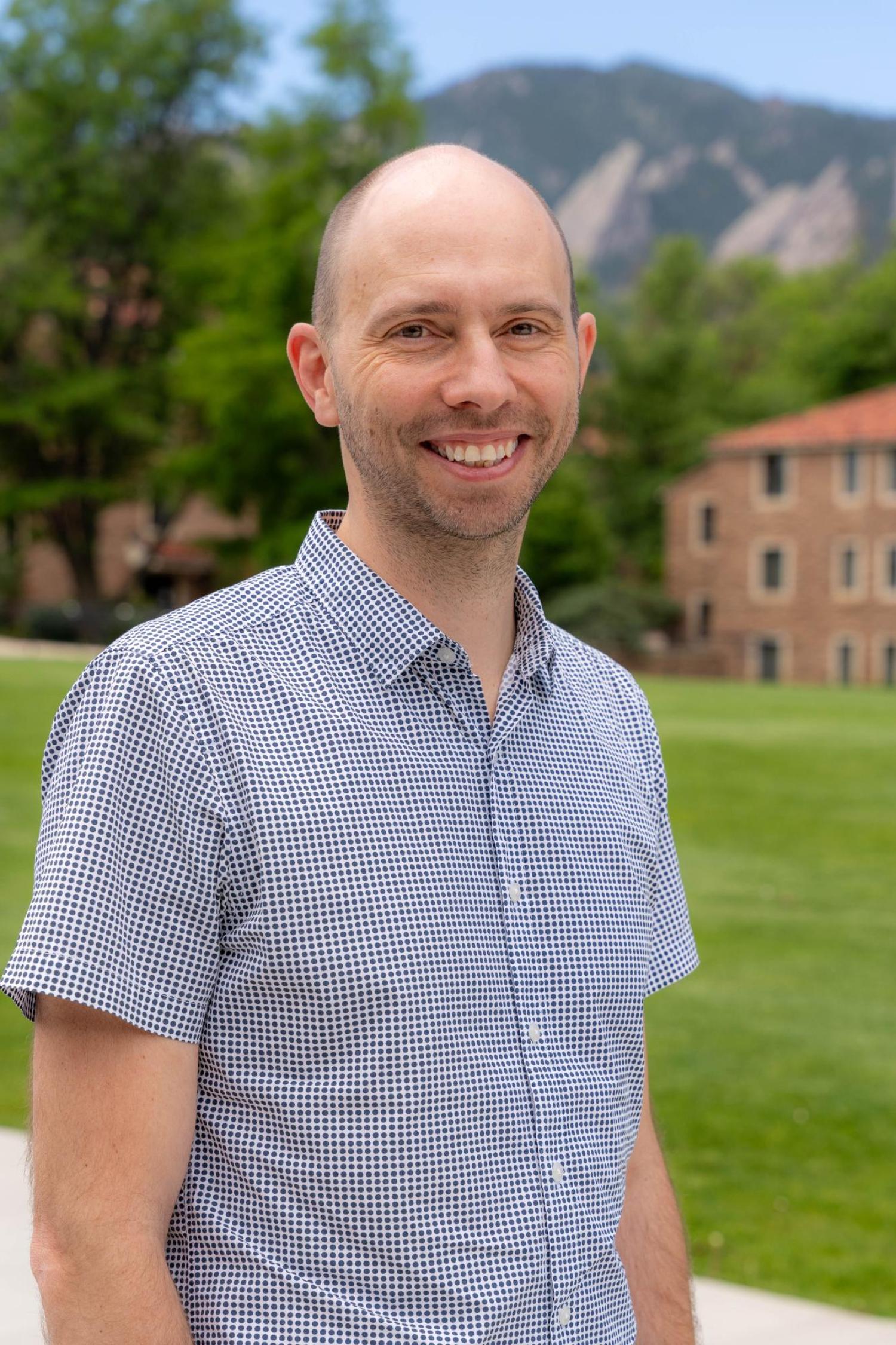Combes seeks to transform the quantum technology landscape

Josh Combes
Quantum technology will open new capabilities in computing, networking and sensing. However, quantum computers that exist today have yet to live up to their full potential.
Assistant Professor Josh Combes is taking the challenge of quantum computing to the next level. Combes, who is based in the Department of Electrical, Computer and Energy Engineering, recently earned a National Science Foundation CAREER Award to further his quantum research and foster the next generation of quantum-aware engineers across disciplines.
Through the CAREER Award, Combes seeks to design qubits — a basic unit of information in quantum computing — that are significantly more reliable than those used today. He calls them second-generation qubits.
While progress has been made on reducing qubit errors, first-generation qubits are designed to perform just below the required error rates.
“There's a huge difference between when the Wright Brothers flew their plane and now when you hop on a Boeing 747. There’s now several generations of aircraft, and the Wright Brothers could be compared to being the prototype of first-generation qubits in quantum,” said Combes.
He also used the example of early computers, which suffered from unreliable components. Over time, technologies such as the transistors have made computers smaller and, more importantly, reliable and faster.
“Second-generation qubits are built very intentionally to be protected against errors and computational noise. To build quantum technology that includes quantum computers, sensors and networks, we need to devise ways to eliminate or protect against those errors,” Combes said.
The development of these low-error, second-generational qubits could accelerate the large-scale superconducting quantum computers’ timeline. Quantum, which requires these large-scale computers, is pushing the boundaries in e-commerce, communications, GPS navigation and national security.
Combes is also committed to building a robust national quantum workforce. Universities around the world are struggling to meet the increased industry demands, which require ample quantum training. To that end, Combes designed a new quantum engineering (QE) minor to help STEM students outside of physics become proficient in quantum.
Quantum technology has traditionally been centered around the work from theoretical and experimental physicists, computer scientists and mathematicians. To create a quantum community, the field will need to draw its expertise across different disciplines.
“We're starting to see people from other fields coming in and making contributions,” said Combes. “We’re seeing electrical engineers, mechanical engineers and chemical engineers starting to make quantum technology, so it’s becoming a more multidisciplinary field.”
CAREER Awards provide approximately $500,000 over five years for junior faculty members “who have the potential to serve as academic role models in research and education and to lead advances in the mission of their department or organization.” Seven faculty members within the College of Engineering and Applied Science have received CAREER Awards from the National Science Foundation in 2023.
“What excites me is how this will impact our graduate students through funding and their ability to work on these ideas for broader impact. That’s the real meaning of earning this CAREER Award.”

